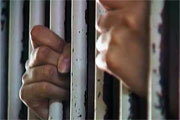Eritrea’s culture of fear – Washington Post
WHEN PEOPLE risk their lives to evade armed border guards or pack rickety boats at sea, you can be sure the conditions they are fleeing are frightful. This is as true for the persecuted Rohingya

WHEN PEOPLE risk their lives to evade armed border guards or pack rickety boats at sea, you can be sure the conditions they are fleeing are frightful. This is as true for the persecuted Rohingya Muslims of Burmawho set sail on packed vessels in the Andaman Sea as for the escapees who manage to flee the horrors of North Korea’s prison camps. And it is true for people fleeing Eritrea, a country that won independence from Ethiopia in 1993 and has become a human rights disaster.
Listen, for example, to a woman who fled last year. Her husband had been arrested in 2009 outside their home, she told the U.N. Commission of Inquiry on Human Rights in Eritrea . She went to the prison to find out why. “For years, I was going once a week. I took food and some clothes. They never told me how he was doing.” After a few years, the prison refused to take the food and clothes. She lost hope. “I haven’t seen my husband in seven years and don’t know if he is alive or not. I searched for him, but the authorities finally told me just don’t bother coming back, there’s no point.”
She joined the flood tide of people leaving Eritrea and attempting to cross the Mediterranean Sea on flimsy rafts and boats. According to the U.N. High Commissioner for Refugees , the global number of asylum seekers and refugees from Eritrea as of a year ago stood at 444,091, about 12 percent of the country’s official population count of 3.6 million. (Unofficial totals are 6 million to 7 million.) Eritreans accounted for 24.7 percent of all Mediterranean arrivals by sea to Italy last year, the largest number from a single country of origin.
An explanation is contained in the latest report of the U.N. Commission of Inquiry , published Wednesday, which found reasonable grounds to believe that “crimes against humanity” have been committed against the population. The report urged a referral to the International Criminal Court. The crimes include indefinite national service, arbitrary detention, torture, enforced disappearance, persecution on ethnic and religious grounds, rape and murder. They are a powerful indictment of the rule of President Isaias Afwerki, who has been in power since 1991.
The U.N. Commission, which Eritrea did not permit to visit, conducted 833 interviews from outside and documented a “general climate of fear.” Many of the abuses are centered around the military in a heavily militarized society. Soldiers are conscripted, made to serve indefinitely in abusive conditions — sometimes The commission’s report leaves no doubt why people would flee Eritrea. Committing crimes against humanity is a serious charge — and so are the abuses described in this devastating report. Those responsible must be held to account.as forced labor in state-owned companies. Torture is extensive and methodical in civilian and military detention facilities. Rape in military training centers, in the army and in detention is committed with impunity, and soldiers are not punished for rape in society.

Amechea June 13, 2016
We all should know, the truth, after 25 years independent , what exactly eritreaian people benefit.not to mention exile and drown into medertrian sea. It is time.., for them to leave the power to the people of Eritrea. When things getting pretty tight here it is they going to war, they want to fool us as usual. Enough is enough. More power to the people of Eritrea.